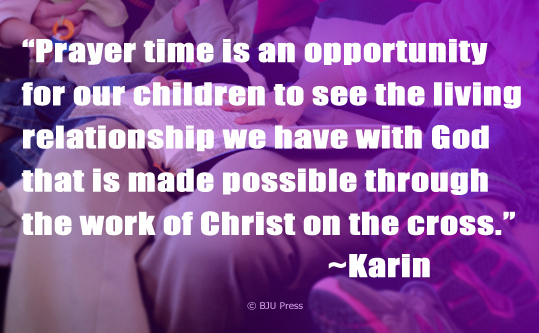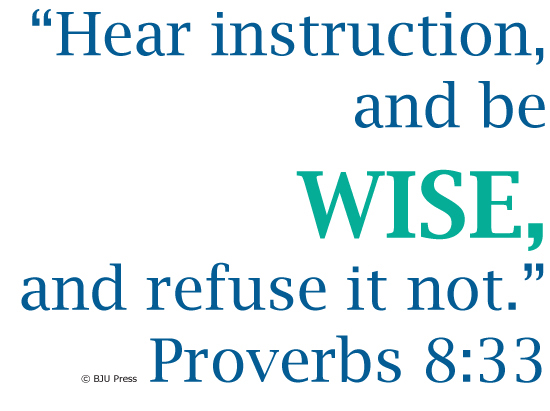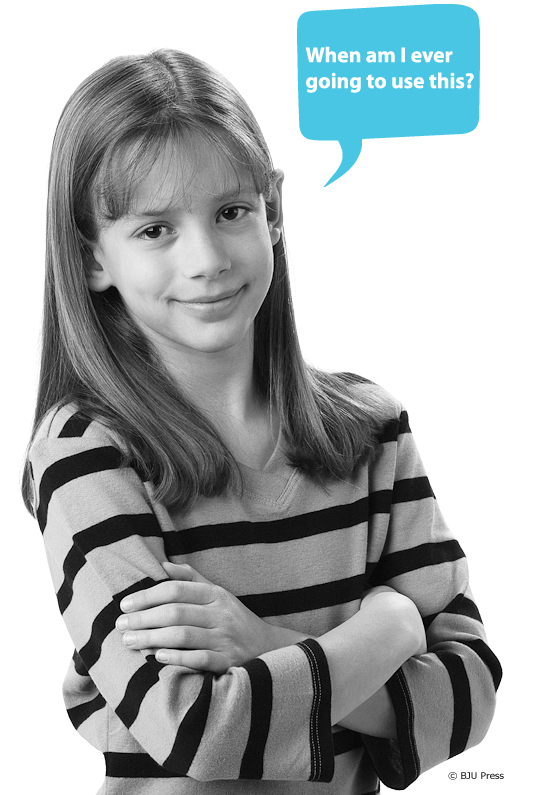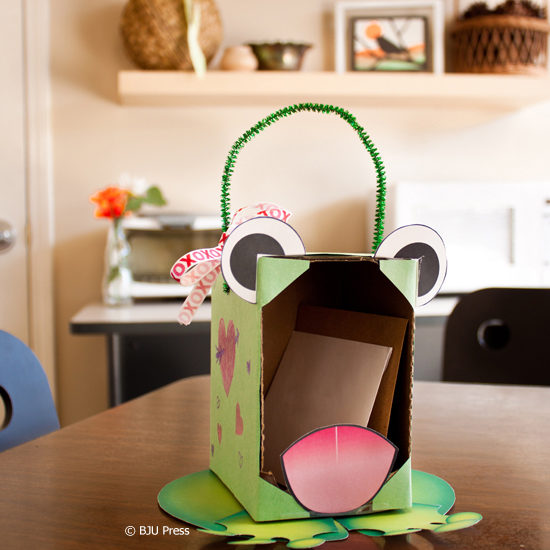In Part 1, we looked at why family worship is important. In Part 2, we introduced three elements you may want to include in your devotions—reading, praying, and singing.
Since we covered reading Scripture in Part 2, let’s look into the other two aspects of devotions today.

Praying
Prayer time is an opportunity for our children to see the living relationship we have with God that is made possible through the work of Christ on the cross. As a family, we can praise Him for His attributes and works, repent of our sins, present our requests, and thank Him for all things. It is also a time when we can work out any family disputes, making sure we are right with one another as well as with the Lord (Hebrews 3:13). One dad in our church says he likes to pray at the beginning and the end of family time as a reminder of our dependence on God because only He can work in our children’s hearts.
Memory Work
Before prayer time, our family does some memory work with Scripture verses and Bible questions and answers. It is an interactive way to involve our children and help them hide God’s Word and theological truths in their hearts. Our family uses the three-booklet set Truth and Grace Memory Books by Thomas K. Ascol. Another option is the BJU Press Bible Truths series that includes memory work and Bible Truths for Christian Growth. If your children enjoy learning online or with a mobile device, you may want to check out the New City Catechism, which includes engaging videos from well-known Christian leaders. With the various catechism options, you can check with your pastor about one that lines up with your church doctrine.
Singing
Ending family worship with singing joins our hearts and voices in praise of our great God and Savior (Colossians 3:16). It lifts our hearts and focuses our minds on biblical truths. Consider including a few Sunday school songs for the little ones as well as songs you sing during your church worship service.
Our two-year-old often asks to sing “Deep and Wide” and even though I can’t discern any clear Scriptural connection to that song (it may be referencing John 4:14), we sing it every now and then for his enjoyment. He also loves “I May Never March in the Infantry” and other action songs, so we try to include those along with great hymns of the faith.
I hope the ideas I’ve presented so far have helped you begin or even rethink your family’s devotion time. My next post will talk about overcoming any obstacles you may encounter during your family’s devotions.
Do you have an order that your family’s devotion time follows? How do you encourage your children to memorize Scripture and other biblical truths?



 When it’s time to share the valentines, use
When it’s time to share the valentines, use